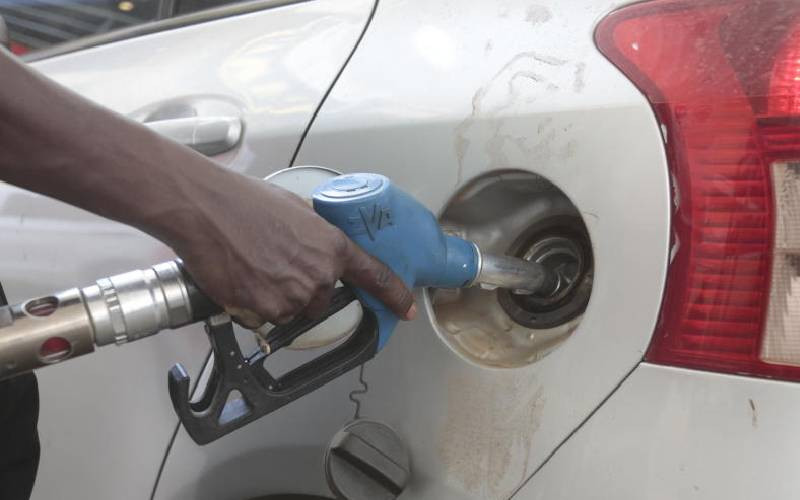Top taxman John Njiraini wants to scrap all tax breaks in a twist that could jolt foreign investors and rope in more revenue, but could be bring relief to millions of households.
The director general of the Kenya Revenue Authority has proposed that improved service delivery in the public sector will maintain the country’s attractiveness as an investment destination among international investors.
Kenya is estimated to lose more than Sh100 billion annually through tax breaks given to multinational firms, to stir up debate on whether there were any gains for the economy.
He is the senior-most public figure to call for the retirement of the concessions in Kenya now echoing similar calls by civil society groups such as Tax Justice Network.
“...the effect of such concessions and incentives on investor confidence remains minimal,” said Njiraini yesterday during an Ambassadors/High Commissioners conference in Kwale. Kenya had pursued tax incentives as a means of attracting foreign firms to invest in the country, in a bid to gain on technology transfer and job creation.
Such tax incentives include the Export Processing Zones where investors are offered a 10-year tax holiday, duty-free import of materials and inputs, 100 per cent capital investment deduction for manufacturing and double taxation agreements. In August last year,
Kenya Investment Authority chief executive Moses Ikiara spoke of intentions to retire the various tax incentives.
“Foreign firms have in most cases been taking away more than the economies that compete to host them gain,” Ikiara said in support for his argument of eliminating tax breaks.
Ikiara also said that the focus for the State had shifted to investment in creating an attractive environment for doing business.
tax ranking
But Njiraini’s choice of audience in the ongoing conference dubbed Investment Opportunities and Incentives in Kenya, could be a pointer that the measures are not merely proposals that the country is considering.
He noted that research across the East Africa region had confirmed that indeed tax incentives ranked poorly as a consideration for attracting foreign investors.
He said, “Globally, tax incentives rank low as key investment criterion and the case is replicated in East Africa where such tax incentives are ranked at position 9, 17, 14, 17 and 21 in Burundi, Rwanda, Uganda, Tanzani and Kenya respectively.”
Njiraini asked the foreign representatives to instead raise awareness back home on Kenya’s growing ‘Ease of Doing Business’. World Bank carries out the Ease of Doing Business survey, placing Kenya at position 136 out of 189 as indicated in the latest study published last month.
Kenya protested the ranking, claiming several new measures started by the State had not been captured, in its assertion that the country had steadily done away with issues that increased the cost and time of completing transactions.
Stay informed. Subscribe to our newsletter
alternative options
Last week, for instance, the Government announced new measures that would see a drastic cut on the time it takes to register a property. Within months, as per State plans, investors could register property in Kenya in 14 days, down from the current 72 days.
Industrialisation Minister Adan Mohamed said Kenya was also working on slashing the cost of energy as part of a wider strategy to cut the cumulative cost of doing business.
Njiraini told the ambassadors that Kenya was striving to enhance national tax compliance rates by providing convenient customer engagement options, such as embracing online-based tax management.
KRA is also pursuing a process to fast-track the resolution of pending tax disputes at the Tax Appeals Tribunal, which could see it unlocking more than Sh25billion in disputed assessments.
Another Sh33 billion held up in judicial court processes could be unlocked with the establishment of a Tax Division of the High Court.
 The Standard Group Plc is a
multi-media organization with investments in media platforms spanning newspaper
print operations, television, radio broadcasting, digital and online services. The
Standard Group is recognized as a leading multi-media house in Kenya with a key
influence in matters of national and international interest.
The Standard Group Plc is a
multi-media organization with investments in media platforms spanning newspaper
print operations, television, radio broadcasting, digital and online services. The
Standard Group is recognized as a leading multi-media house in Kenya with a key
influence in matters of national and international interest.
 The Standard Group Plc is a
multi-media organization with investments in media platforms spanning newspaper
print operations, television, radio broadcasting, digital and online services. The
Standard Group is recognized as a leading multi-media house in Kenya with a key
influence in matters of national and international interest.
The Standard Group Plc is a
multi-media organization with investments in media platforms spanning newspaper
print operations, television, radio broadcasting, digital and online services. The
Standard Group is recognized as a leading multi-media house in Kenya with a key
influence in matters of national and international interest.









